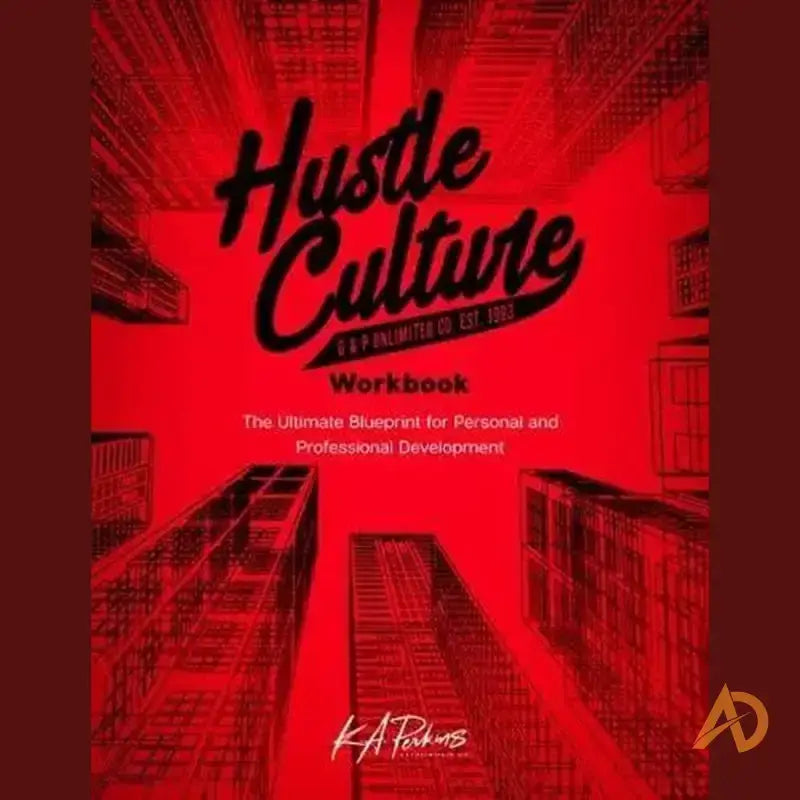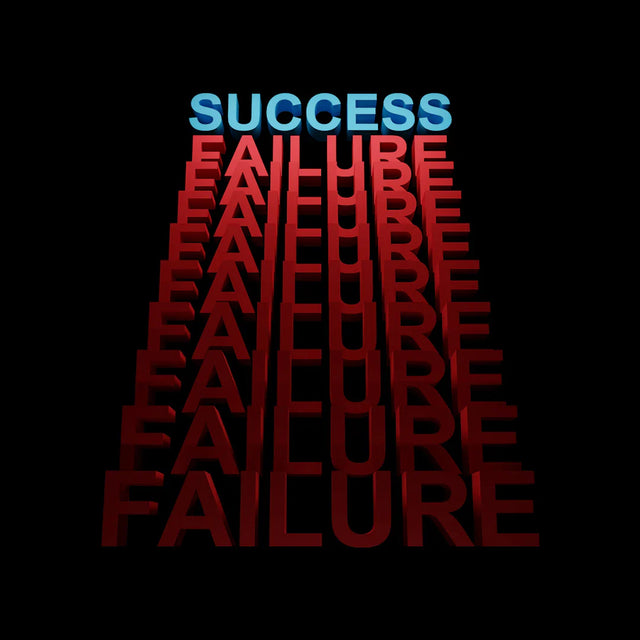Redefining Failure for Growth with the Hustle Culture Workbook
Overview
Embrace failure as a crucial part of growth and success. Shift your perspective to view setbacks as learning opportunities, find strength in faith, and develop resilience through a supportive network and self-compassion. Create an actionable plan to learn from mistakes, celebrate successes, and continuously seek improvement. Ultimately, turning obstacles into opportunities is key to personal and professional development.
Frequently Asked Questions
1. Why is it important to embrace failure?
2. How can I change my perspective on failure?
3. What role does faith play in coping with failure?
4. How can I turn mistakes into lessons?
5. What are some strategies to build resilience?
In today's fast-paced world, the pressure to succeed can be overwhelming. Many individuals overlook an essential aspect of achieving their goals: the role of failure. While the hustle culture promotes relentless advancement, it's crucial to recognize that mistakes can serve as invaluable learning experiences. In this article, we will delve into the importance of embracing failure, share Christian productivity tips, and introduce the concept behind the Hustle Culture Workbook, equipping you with the tools to turn setbacks into stepping stones for success.
The True Nature of Failure
Failure, often viewed negatively, is a natural part of the learning process. It is through our mistakes that we gain insights, develop resilience, and ultimately find pathways to success. Instead of fearing failure, we should welcome it, understanding that each stumble can lead to a more profound understanding of ourselves and our endeavors.
Changing Your Perspective
It's crucial to shift our mindset regarding failure from despair to curiosity. Here are some tips to help you change your perspective:
- Recognize Failures as Opportunities: Each setback can be a lesson learned. Ask yourself what you can take away from the experience.
- Shift Your Narrative: Instead of stating, "I failed," try saying, "I learned something important." This simple adjustment can make a significant difference in how you view your experiences.
- Focus on Growth: Rather than trying to avoid failure, focus on your growth journey. Embrace the idea that each failure can lead closer to your ultimate goals.
The Emotional Toll of Failure
Experiencing failure can take an emotional toll, leading to feelings of inadequacy and hopelessness. It's essential to acknowledge these emotions while remembering that they don't define us. Embracing Christian productivity tips can be beneficial in processing these feelings and finding strength in faith.
Finding Strength in Faith
Faith can serve as a powerful anchor during tumultuous times. By turning to scripture and prayer, one can find solace and motivation to navigate through failure. Some practical Christian productivity tips include:
- Scripture Reflection: Reading passages that speak to perseverance, such as Philippians 4:13, can inspire you to look beyond your current challenges.
- Prayer for Guidance: Seeking divine assistance can provide clarity and strength as you navigate through your mistakes.
- Community Support: Engaging with your faith community can offer emotional support and collective wisdom during times of struggle.
Turning Mistakes into Lessons
The real value in failure comes from the lessons learned. But how do we effectively translate these errors into valuable wisdom? Here’s a structured approach to doing just that:
1. Analyze the Situation
Take an honest look at what went wrong. Consider the following questions:
- What were the circumstances that led to this failure?
- What specific decisions did I make that contributed to this outcome?
- Were there any warning signs that I overlooked?
2. Write It Down
Utilizing a Hustle Culture Workbook can be incredibly useful in documenting your thoughts and experiences. Writing down your failures allows you to reflect on them more clearly, helping you identify patterns and areas for growth.
3. Set New Goals
After thoroughly analyzing your failure, it’s time to create actionable steps towards improvement. These goals should be specific, measurable, achievable, relevant, and time-bound (SMART). Consider what you want to achieve and how your mistakes can inform your strategy moving forward.
The Role of Resilience
Resilience is the ability to bounce back from failure and maintain a commitment to your goals despite setbacks. Developing resilience is crucial for long-term success. Here’s how you can foster resilience in your life:
1. Embrace a Growth Mindset
Believing that your abilities can improve over time is essential. This mindset encourages you to take on challenges rather than avoiding them, ultimately leading to personal and professional growth.
2. Build a Support Network
Surrounding yourself with positive, encouraging individuals provides emotional strength during tough times. Share your experiences with those who can offer support, accountability, and guidance.
3. Practice Self-Compassion
It's easy to be overly critical of ourselves after a failure. However, practicing self-compassion allows us to be kinder to ourselves, recognizing that everyone makes mistakes and deserves understanding, especially from themselves.
Creating an Action Plan for Moving Forward
Having a clear action plan is crucial for turning your mistakes into actionable lessons. To streamline your approach, consider the following elements when crafting your plan:
1. Identify Your Priorities
Assess your current goals and prioritize them according to their importance to you. This will help clarify where to focus your energy and time.
2. Determine Action Steps
Break down your larger goals into smaller, achievable tasks. This makes the overall objective less overwhelming and allows for incremental accomplishments.
3. Seek Continuous Improvement
The journey doesn’t end once you implement an action plan. Continuously seek feedback, evaluate your progress, and adjust your strategies as needed. Remember that growth is an ongoing process.
Celebrating Successes
While it's crucial to focus on learning from mistakes, don’t forget to celebrate your successes along the way! Acknowledging your achievements, no matter how small, reinforces positive behavior and fuels your motivation.
Practice Gratitude
Incorporate gratitude practices into your routine. Reflect on what you’ve accomplished, the lessons learned from your failures, and the support you’ve received from others. Expressing gratitude enhances emotional well-being and reaffirms your growth trajectory.
Set Milestones
As you implement your action plan, establish milestones to mark key moments in your journey. Celebrating these can provide motivation, remind you of your achievements, and affirm the validity of the lessons gleaned from past mistakes.
Embracing the Journey Ahead
Every failure carries the potential for valuable insights and growth. The ability to learn from mistakes is a fundamental component of personal and professional development. By adopting a proactive approach to embracing failures, applying Christian productivity tips, and utilizing tools like the Hustle Culture Workbook, you transform obstacles into opportunities. Remember, as you navigate through life’s journey, the ability to turn setbacks into stepping stones will serve as your greatest asset.
Linked Product

Hustle Culture Workbook By k a Perkins
The Hustle Culture Workbook by K A Perkins offers practical strategies and exercises aimed at enhancing productivity and personal growth. This 81-page guide is designed for individuals looking to navigate the complexities of hustle culture, making it suitable for both at-home study and on-the-go reflection. Its accessible language and thoughtful insights cater to a diverse range of readers eager to transform challenges into opportunities.
View Product




0 Comments
There are no comments for this article. Be the first one to leave a message!